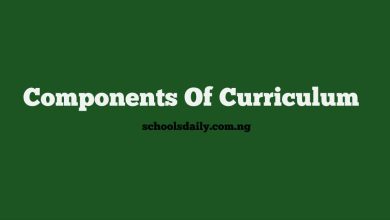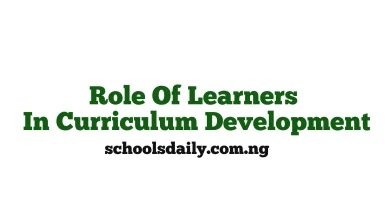Qualities Of A Basic Technology Teacher

In this article, we’ll be looking at some vital qualities of a basic technology teacher.
- Technical Expertise
A basic technology teacher should possess strong technical expertise in the tools and software being taught. This includes having a solid understanding of computer hardware, software applications, and networking fundamentals. The teacher should be able to demonstrate proficiency in using various technology tools, such as word processing, spreadsheet, and presentation software. By having technical expertise, the teacher can provide accurate guidance, troubleshoot technical issues, and help students overcome obstacles, ultimately creating a positive and productive learning environment.
- Patience
Patience is a vital quality for a basic technology teacher. Many students may struggle to understand complex technical concepts or may have varying levels of prior knowledge and experience. A patient teacher can create a supportive and non-threatening learning environment, where students feel comfortable asking questions and seeking help. By being patient, the teacher can also help students build confidence in their abilities, which can lead to increased motivation and engagement in the learning process.
- Communication Skills
Effective communication is critical for a basic technology teacher. The teacher should be able to clearly explain complex technical concepts in a way that is easy for students to understand. This includes using simple language, providing concrete examples, and using visual aids to support instruction. Good communication skills also involve active listening, where the teacher pays attention to students’ questions, concerns, and feedback. By communicating effectively, the teacher can ensure that students grasp key concepts, can ask informed questions, and can apply what they have learned.
- Organizational Skills
A basic technology teacher should possess strong organizational skills to plan and deliver lessons efficiently. This includes creating detailed lesson plans, organizing instructional materials, and managing classroom resources. The teacher should also be able to prioritize tasks, manage time effectively, and minimize disruptions to ensure a smooth and productive learning environment. By being organized, the teacher can reduce stress, increase productivity, and create a positive learning experience for students.
- Flexibility
Flexibility is essential for a basic technology teacher. The teacher should be able to adapt to new technologies, changing curriculum needs, and unexpected classroom challenges. This includes being willing to adjust lesson plans, try new instructional strategies, and incorporate emerging technologies into the curriculum. By being flexible, the teacher can stay current with the latest technological advancements, respond to students’ diverse needs, and create a dynamic and engaging learning environment.
- Inclusivity
A basic technology teacher with inclusivity creates a welcoming and inclusive learning environment for all students, regardless of their background, culture, or abilities. This involves using diverse resources, providing accommodations for students with disabilities, and promoting respect and empathy among students. By fostering inclusivity, the teacher ensures that all students feel valued, supported, and empowered to learn.
- Resourcefulness
A resourceful basic technology teacher finds creative ways to integrate technology into the curriculum, often with limited resources. This involves seeking out free or low-cost digital tools, repurposing existing materials, and collaborating with colleagues to share resources. By being resourceful, the teacher can provide engaging and interactive learning experiences for students, even with limited budgets.
- Time Management
Effective time management is crucial for a basic technology teacher, as they need to balance instructional time, lab activities, and administrative tasks. A teacher with strong time management skills can prioritize tasks, minimize distractions, and optimize class time to meet learning objectives. By managing time efficiently, the teacher can create a productive and respectful learning environment.
- Feedback
A basic technology teacher who provides constructive feedback helps students grow and improve their skills. This involves offering regular, specific, and actionable feedback that guides students in refining their work. By providing feedback, the teacher encourages students to reflect on their learning, identify areas for improvement, and develop a growth mindset.
- Enthusiasm
Finally, a basic technology teacher with enthusiasm displays passion for technology education and inspires students to learn. This involves showing genuine excitement for the subject matter, sharing real-world applications, and celebrating students’ successes. By being enthusiastic, the teacher creates a positive and engaging learning environment that motivates students to explore and learn about technology.
- Classroom Management
A basic technology teacher with strong classroom management skills maintains a well-organized and respectful learning environment. This involves creating and enforcing clear rules and expectations, managing student behavior, and minimizing distractions. Effective classroom management enables the teacher to deliver instruction efficiently, ensures student safety, and promotes a positive learning environment.
- Assessment and Evaluation
A basic technology teacher with assessment and evaluation skills can measure student learning and evaluate the effectiveness of the technology education program. This involves creating and administering assessments, analyzing student data, and using the results to inform instruction. By assessing and evaluating student learning, the teacher can identify areas for improvement, refine instructional strategies, and promote student growth.
- Collaboration
A basic technology teacher who collaborates with colleagues works together to develop and implement curriculum, share resources, and support each other in their teaching practices. Collaboration enables teachers to leverage each other’s strengths, expertise, and experiences to improve student learning outcomes. By working together, teachers can create a cohesive and comprehensive technology education program.
- Continuous Learning
A basic technology teacher committed to continuous learning recognizes the importance of ongoing professional development in technology education. This involves staying current with emerging technologies, trends, and best practices in technology education. By committing to continuous learning, the teacher can refine their instructional strategies, enhance their technical expertise, and provide students with relevant and engaging learning experiences.
- Student-Centered
A student-centered basic technology teacher focuses on the needs, interests, and learning styles of their students. This involves creating personalized learning experiences, incorporating student feedback, and promoting student autonomy. By being student-centered, the teacher can increase student motivation, engagement, and learning outcomes and help students develop a love for technology and learning.





